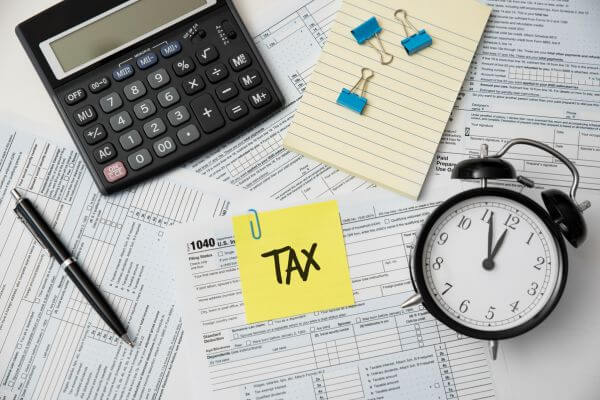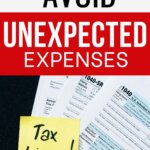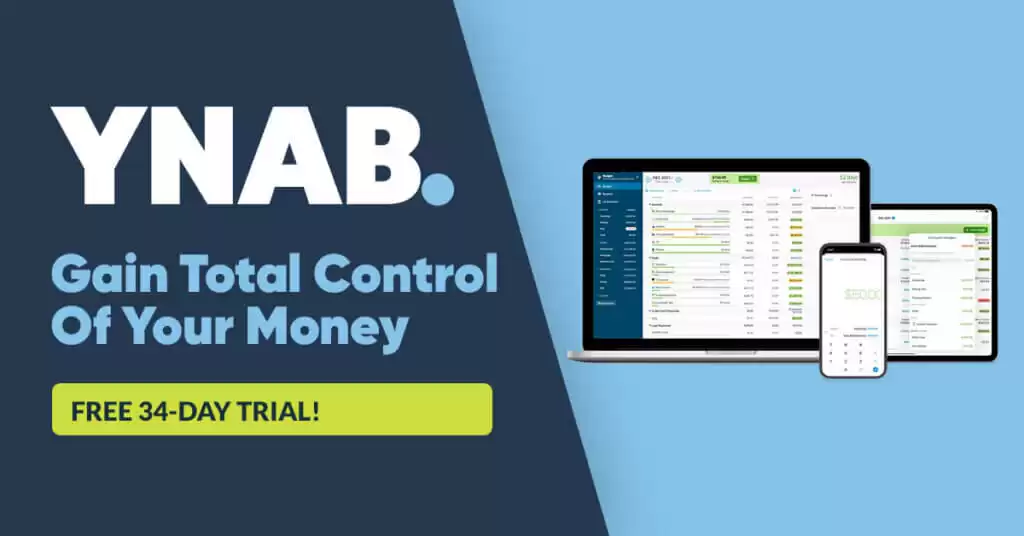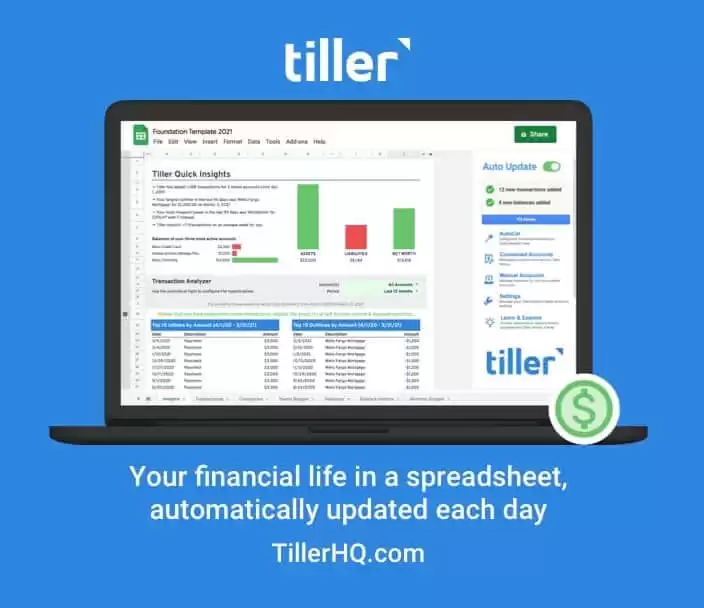What Are Unexpected Expenses? And How to Avoid Them
Inside: Are you finding yourself struggling to cover unexpected expenses? This guide will teach you how to create a financial plan and budget that will help you avoid costly surprises.
Life is full of surprises, and not all of them are pleasant. Sometimes, these surprises come in the form of unexpected expenses, hitting when one least expects them.
This can leave you devasted financially. Over the years, we have been slapped with unplanned costs and left scrambling.
However, you can successfully navigate through the rollercoaster ride of money management.
The key is knowing “What are unexpected expenses?’ Along with the knowledge equips you to avoid or mitigate them.

This post may contain affiliate links, which helps us to continue providing relevant content and we receive a small commission at no cost to you. As an Amazon Associate, I earn from qualifying purchases. Please read the full disclosure here.
What are Unexpected Expenses?
In the realm of personal finance, unexpected expenses are costs you haven’t foreseen or budgeted for. They strike out of nowhere, leaving you scrambling to balance your finances.
These expenses differ from other cost categories such as fixed expenses (weekly, monthly, and recurring costs like rent) and variable expenses (those that do not happen regularly but vary in cost like groceries).
The crux lies in not being able to anticipate these unplanned expenses, making them disruptive to financial plans.
What is an example of unplanned spending?
Unplanned spending often occurs when there’s an unforeseen event that demands immediate financial attention.
Picture this scenario: You take your car for a routine inspection; however, the car fails the inspection due to a defective part that needs immediate repair. Initially, you hadn’t allocated funds for this, but now you have to deal with this unforeseen cost – a classic case of unplanned spending.
Common Examples of Unexpected Expenses

Unforeseen financial events can leave many unprepared and struggling, adding unnecessary stress. This section will delve into examples of typical unexpected expenses that individuals often encounter, providing key insights into how to efficiently incorporate these into your financial plan.
By understanding and preparing for these unexpected expenses, one can effectively mitigate the surprise factor they pose, promoting a healthier and more secure financial state.
We have overcome many times and you can too!
1. Medical Emergencies and Healthcare Costs
Medical emergencies are prominent examples of unexpected expenses. Even with health insurance, costs can amass, thanks to high deductibles, co-payments, and therapies not covered by insurance.
One factor is paying for the medical costs, but the other weighing factor is loss of income when dealing with medical emergencies or critical diseases like cancer.
Overcome this by:
- Contributing the max each year to your Health Savings Account (HSA). This way you have a bucket of money just for medical expenses.
- Look into short-term disability insurance that can cover part of your lost wages while you can’t work.
2. Automatic Home or Vehicle Repair Needs
Home and vehicle repairs often sneak up as unexpected expenses. Time, accidents, natural disasters — all can cause wear and tear that demands immediate repair. The consequences of ignoring these repairs can be hefty.
Similarly, significant home repairs such as fixing a faulty HVAC system or leaky roof can set you back by thousands of dollars.
Overcome this by:
- Be proactive with routine maintenance. Take care of your house and car before problems escalate.
- Save the same amount each month for home and vehicle repairs separately.
Personally, we save $100 monthly for car repairs as one is a beater car. This amount will be increased to $350 to start saving for a new car. Conversely for home repairs, we keep a minimum of $1000. This amount will fluctuate depending on when we last did a major repair. Since we just replaced our HVAC, our funds are lower.
3. Natural disasters

Natural disasters, such as hurricanes, earthquakes, wildfires, and floods, lead to unexpected spending. The impact of these events can cause significant damage to homes, cars, and other property, leading to repair and replacement costs.
Furthermore, these situations might also necessitate expenses for emergency supplies, temporary shelter, and other necessities. For instance, Hurricane Katrina inflicted a staggering $196.3 billion in damage, illustrating the overwhelming cost of such unpredictable events.1
Overcome this by:
- Make sure you have proper insurance whether it is renter insurance or flood/wildlife insurance. Also, make sure you have the proper amount of insurance. As highlighted by the Marshall Fire where most people were underinsured. 2
- Storing cash on hand at home in case of an emergency. A cushion of money will always be helpful.
4. Increase in Bills
Monthly bills are a constant in our lives, but what’s not constant is their amount. Landlords may raise the rent when leases are up for renewal, utility companies could increase their rates, and insurance premiums may also inflate periodically.
All these scenarios lead to higher monthly expenses. For example, the U.S. energy costs per household rose by 13% in 2022 reaching the highest percentage increase since it was measured. 3
Being unprepared for these increases can cause significant financial strain.
Overcome this by:
- Get one month ahead on your bills. Then, you will start building a cushion. Also, known as aging your money – thanks to YNAB.
- Be proactive and realize that with inflation high. All of your bills will likely increase in cost.
Enjoy guilt-free spending and effortless saving with a friendly, flexible method for managing your finances.
- Comprehensive approach to budgeting, helping you plan monthly budgets based on your income.
- Offers expert advice, making it suitable for those who require an in-depth, forward-thinking budgeting strategy.
- Superior synchronization skills make it the winner in this area.
- YNAB has extra features like goal setting for budgeting, shared budgeting tools for partners.
- Option to manually add and upload transactions from accounts each month.
- YNAB prioritizes user privacy.
5. Overlooked Taxes
Overlooked taxes pose another source of unexpected expenditure.
A higher than expected tax bill can indeed surprise and unbalance your budget. This happened to my friend when she started her own fitness coaching business.
Uncertainties in estimating the exact tax amount, mathematical errors in filing, or an overlooked quarterly tax payment often culminate in an escalated tax bill. An audit from the IRS, though it may find no additional taxes owed, can lead to expensive fees from a CPA or tax attorney.
Overcome this:
- Use a tax calculator to know what your estimated tax payment due.
- Understand the common reasons you may owe higher taxes this year.
6. Pet Emergencies

Pet emergencies can bite a large chunk out of your budget without warning. For instance, if your cat suddenly starts having seizures or your dog gets hit by a car, the medical costs associated can spiral rapidly.
Emergency vet care can range between a few hundred dollars to several thousand dollars. For instance, a poisoning can range from $200-$3000. 4
Overcome this by:
- Prevention methods like pet insurance can help you manage these costs effectively.
- Decide in advance the maximum you are willing to spend on emergency vet care.
7. Delayed payments
Delayed payments may not be an external expense, but the repercussions can be just as financially challenging. This affects your income stream, potentially leading to difficulty in managing your financial obligations.
For example, if an employer goes bankrupt, salaries might be delayed or even indefinitely withheld. According to research, late payments can cost businesses $3 trillion globally, affecting both personal financial planning and business operations.5
This is a highly stressful situation.
Prepare yourself financially by:
- Aging your money. By getting one month ahead of your bills, you can scrap through a delayed payment. YNAB coined this term.
- Start saving for a large rainy day fund.
Simply select one of the high-yield savings products offered by their network of federally insured banks and credit unions to begin your savings journey.
You can open a free Raisin account in just a few minutes!
8. Gifts and Special Occasions
Commemorating special occasions can lead to unexpected expenses. Life events such as birthdays, weddings, baby showers, and retirements, traditionally require gift-giving.
While typical gift giving on Christmas or birthdays should be part of your planned variable expenses. Saying yes to being a bridesmaid can definitely set you back a few thousand dollars. These are costs that we often fail to factor into our budgets.
Overcome this by:
- Setting aside money monthly to cover gifts and special occasions.
- If saying yes to a special event will hamper your finances, then you may have to politely decline the invitation.
9. Unexpected Travel Costs

Unexpected travel costs can significantly impact your budget, particularly when they arise from unplanned events such as attending a funeral or a wedding. The costs of last minute travel can vary widely depending on the destination, distance, and mode of transportation.
To manage these expenses, consider driving or taking public transportation for shorter trips, exploring less expensive lodging options, and creating a meal plan that limits dining out.
Overcome this by:
- Setting aside a regular amount in a travel fund can help prepare for these unexpected costs that tend to crop up every year.
- Decide if taking the unplanned trip is something you can feasibly manage with your current financial situation.
10. What You Forget to Budget for
Some subtle but regular expenses often sneak past our budget plans. This is why we have a full list of budgeting categories so hopefully, you don’t miss anything!
Consider online subscriptions and memberships: Many services offer free trials, but the charges kick in if not canceled. Other overlooked budget items may include pet care, parking fees, and toll fills—small amounts that may seem insignificant but can considerably dent your budget over time.
Overcome this by:
- Review your checking account and credit card bills to see all of your expenses for the past year. Write down those unexpected expenses that came through.
- Now, make a plan for how to spend your money in advance with your findings.
This helps you prepare for unexpected expenses

Here are simple tips to make sure you employ the habits of a financially stable person.
Tip #1 – Building an Emergency Fund
Building an emergency fund is a fundamental strategy to brace for unexpected expenses. This fund acts as a financial buffer, providing the economic security to cover unexpected costs without tapping into monthly budgets or savings aimed at other goals.
As a starting point, aim to save $1000 and then work your way up to save a month’s paycheck. Start small and build over time – every penny set aside helps to mitigate future financial stress.
Tip #2 – Properly Utilizing Sinking Funds
Sinking Funds are a sagacious tactic to prepare for larger, infrequent expenses. They allow you to systematically and gradually save up for anticipated financial obligations such as vacations, holiday gifts, car maintenance, etc.
By assigning a specific amount to save each month, by the time the need arises, you’ll have a pool of money ready. With platforms like YNAB, creating sinking funds becomes easier, letting you monitor your progress month by month.
This is how we have less frequent unplanned costs than we did in our 20s.
Your financial life in a spreadsheet, automatically updated each day.
Tiller is the fastest, easiest way to manage your money with the unlimited flexibility of a spreadsheet.
Update your finances in one place, so you can take control of spending, optimize cash flow, and confidently plan your financial future.
- Tiller automatically updates Google Sheets and Microsoft Excel with your latest spending, balances, and transactions each day.
- No more tedious data entry, CSV files, or logging into multiple accounts.
- You can customize everything and finally track your money, your way.
Tip #3 – Saving for the Larger Rainy Day
Beyond smaller emergency funds and sinking funds, saving for the ‘larger rainy day’ is a crucial tactic to avoid financial duress caused by unexpected expenses. This refers to padding your savings to cover larger, more substantial financial shocks that might require more than just a few months’ worth of expenses.
It may take time to build such a fund, but even a small contribution each month can result in substantial savings over time.
Tip #4 – Pick up a Side Hustle
One way to strengthen your financial resilience against unplanned expenses is to start a side hustle. This could mean picking up extra shifts at work, selling handcrafted items online, or using skills like photography or writing for freelance work.
With the rise of the internet, making money online is really easy and simple to get started. We have a few side hustles to shield against unforeseen costs.
Tip #5 – Budget Properly and Stick to It
Budgeting is an essential line of defense against unexpected expenses. By tracking your income and comparing it against both predictable and variable expenses, you can calculate how much money can be saved each month.
Regular budget check-ins help ensure you’re staying on track, steadying your financial footing.
Personal finance and money management software allows you to manage spending, create monthly budgets, track investments, retirement and more.
I have used this platform for over 20 years now.
- Birds-eye view of your complete financial picture.
- Conveniently download your spending activities, and automatically categorize them (Quicken connects to over 14,000 financial institutions).
- Track investments with it's features like portfolio analytics, retirement goals, and market comparison.
- Little complex to use at first, the learning curve is moderate.
- Yearly subscription-based model to use the platform.
Tip #6 – Regular Review of Financial Plans
Regularly reviewing and updating your financial plans can serve as a preventative measure against unexpected expenses. Consider changes in income, expenses, and lifestyles, and adjust your savings and spending plans accordingly.
Tip #7 – Utilizing Digital Banking Features for Money Management
Digital banking tools have revolutionized financial management and can be part of a robust strategy to avoid unexpected expenses.
Features such as instant account balance checking, transaction alerts, set-and-forget savings transfers, budgeting tools, and proactive spending categorization help you grasp where your money is and how it’s being spent.
Tools to Ward Off Unexpected Expenses and Not Go into Debt

Unexpected expenses are inevitable, yet going into debt to cover these costs can lead to financial strain due to accumulated interest and fees.
Here are crucial steps in preventing unexpected expenses from turning into debt.
Dealing smartly with Credit Cards options
Credit cards can serve as a lifeline during a financial crunch but should be employed judiciously.
To smartly deal with unexpected expenses, consider options like 0% or low-interest credit card offers – these are particularly useful if you can pay off the balance during the introductory period. But tread with caution: high-interest rates can cause difficulties if you can’t pay off the balance in time.
Profit from Asking for a Paycheck Advance
In times when emergency expenses arise, asking for a paycheck advance can help. Some employers offer this as part of their policy to assist employees dealing with abrupt financial needs. A salary advance allows you to ‘borrow’ from your future earnings and repay the amount through future pay deductions.
Budgeting apps like Chime not only help in tracking expenses, but they also enable early access to your paycheck, up to two days before payday. This feature ensures you avoid running short of money at the end of the week or month, allotting you ample room to plan, track, and adjust your spending and savings.
Exploring Personal Loans for Emergency Situations
Personal loans are a convenient option during urgent monetary needs. They are unsecured loans and therefore don’t require collateral.
However, they’re typically accompanied by relatively high-interest rates. Consider using online prequalification tools for personal loans to determine if you’re eligible and view potential interest rates.
Explore different lenders, but be wary of the terms and conditions to make sure you don’t invite more financial trouble.
Which of the following is true regarding unexpected expenses?

- Unexpected expenses are costs that are not anticipated or planned for, such as sudden car repairs or medical emergencies.
- To efficiently manage unexpected expenses, it’s recommended to make them a part of the monthly budget. A suggested approach is to analyze past “unexpected expenses”, then estimate their costs and timing, which can provide an estimate of how much should be saved each month.
- While basing future expenses on past ones only furnishes savings guidelines, this method can prevent an unexpected expense from turning into a severe financial emergency.
- Planning for unexpected expenses by setting aside money from each paycheck can protect individuals from unforeseen financial difficulties.
- Understanding what types of unexpected expenses might occur can help in the development of strategies to handle them successfully, reducing the impact of any unpleasant financial surprises.
Yes, all of the statements above are true.
What is not true about unexpected expenses?
- Unexpected expenses are entirely out of our control.
- Unexpected expenses can be completely avoided.
- These unanticipated costs only occur irregularly or infrequently.
- You can’t prepare for unexpected expenses.
All of these statements are not true. While the occurrence of these expenses might be unexpected, they’re not entirely unpredictable. Many times, they are the result of poor financial planning or management as they are often unforeseen costs that were not anticipated or included in a budget.
Frequently Asked Questions (FAQ)
Plan Ahead to Avoid Unforeseen Expenses

While unexpected expenses are an inevitable part of life, their financial stress isn’t.
Through effective planning and budgeting, you can cushion their blow, ensuring they don’t throw you into financial turmoil. Around here at Money Bliss, we strive for our readers to have less stress with money.
No matter how well you plan, unexpected costs can still arise from time to time. They can happen quite regularly, which is why it’s crucial to include them in budget planning.
By setting aside a portion of each paycheck in a savings account, you can be better prepared for such costs when they arise.
Remember, every dollar saved is a step towards greater financial stability, helping you to navigate life’s uncertainties with confidence and peace of mind.
Now, make sure you are financially sound.
Source
- NOAA.gov. “Costliest U.S. Tropical Cyclones.” https://www.ncei.noaa.gov/access/billions/dcmi.pdf. Accessed December 1, 2023.
- Colorado Public Radio. “Most people who lost homes in the Marshall Fire were underinsured, Colorado insurance regulators say.” https://www.cpr.org/2022/05/02/most-people-who-lost-homes-in-the-marshall-fire-were-underinsured-colorado-insurance-regulators-say/. Accessed December 1, 2023.
- U.S. Energy Information Association. “U.S. residential electricity bills increased 5% in 2022, after adjusting for inflation.” https://www.eia.gov/todayinenergy/detail.php?id=56660. Accessed December 1, 2023.
- BetterPet. “Average emergency vet costs: what to expect.” https://betterpet.com/emergency-vet-costs/. Accessed December 1, 2023.
- Mastercard. “Your real-time guide to real-time payments.” https://www.mastercard.com/news/perspectives/2023/real-time-payments-what-is-rtp-and-why-do-we-need-instant-payments/. Accessed December 1, 2023.
Did the post resonate with you?
More importantly, did I answer the questions you have about this topic? Let me know in the comments if I can help in some other way!
Your comments are not just welcomed; they’re an integral part of our community. Let’s continue the conversation and explore how these ideas align with your journey towards Money Bliss.








